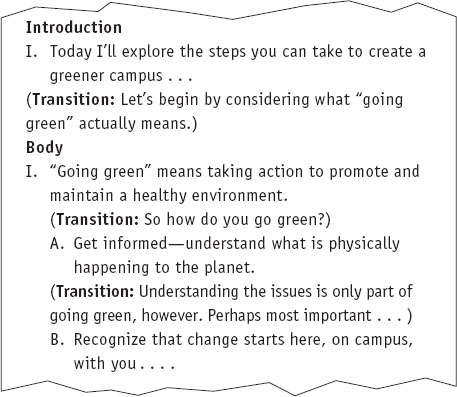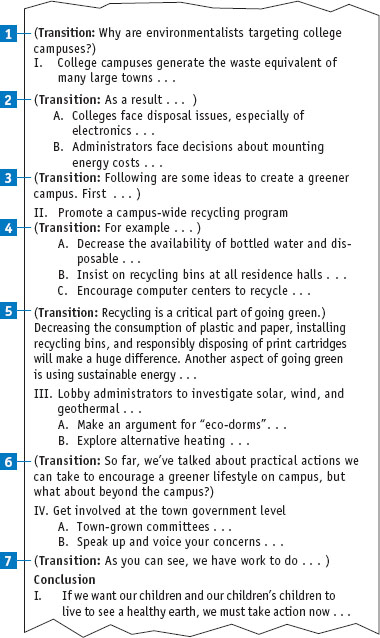From Point to Point: Using Transitions to Guide Your Listeners
Printed Page 102
From Point to Point
Using Transitions to Guide Your Listeners
Using Transitions to Guide Your Listeners
Transitions direct your listeners from one point to another in your speech. At a bare minimum, plan on using transitions to move between:
- The introduction and the body of the speech
- The main points
- Key subpoints
- The body of the speech and the conclusion

While transitions help guide your listeners from point to point, they can also do a lot more, including:
- Introduce propositions (major speech points)
- Illustrate cause and effect
- Signal explanations and examples
- Emphasize, repeat, compare, or contrast ideas
- Summarize and preview information
- Suggest conclusions from evidence
Following is an excerpt from a working outline on a speech about campuses going green. Note how the student edits himself to ensure that he (1) uses transitions to help listeners follow along and retain his speech points and (2) uses transitions strategically to achieve his goal of persuading the audience.


Student inserts a transition (rhetorical question) to introduce a new proposition (e.g., main point).

Student realizes he needs to insert this transitional phrase to signal a cause-effect relationship.

Student uses a transition to move to the next proposition.

This transitional phrase introduces additional examples.

Student inserts an internal summary to help listeners retain information and transition to the next main point.

Student inserts an internal preview to move to the next main point.

Student inserts a transition to signal a shift to his concluding point.